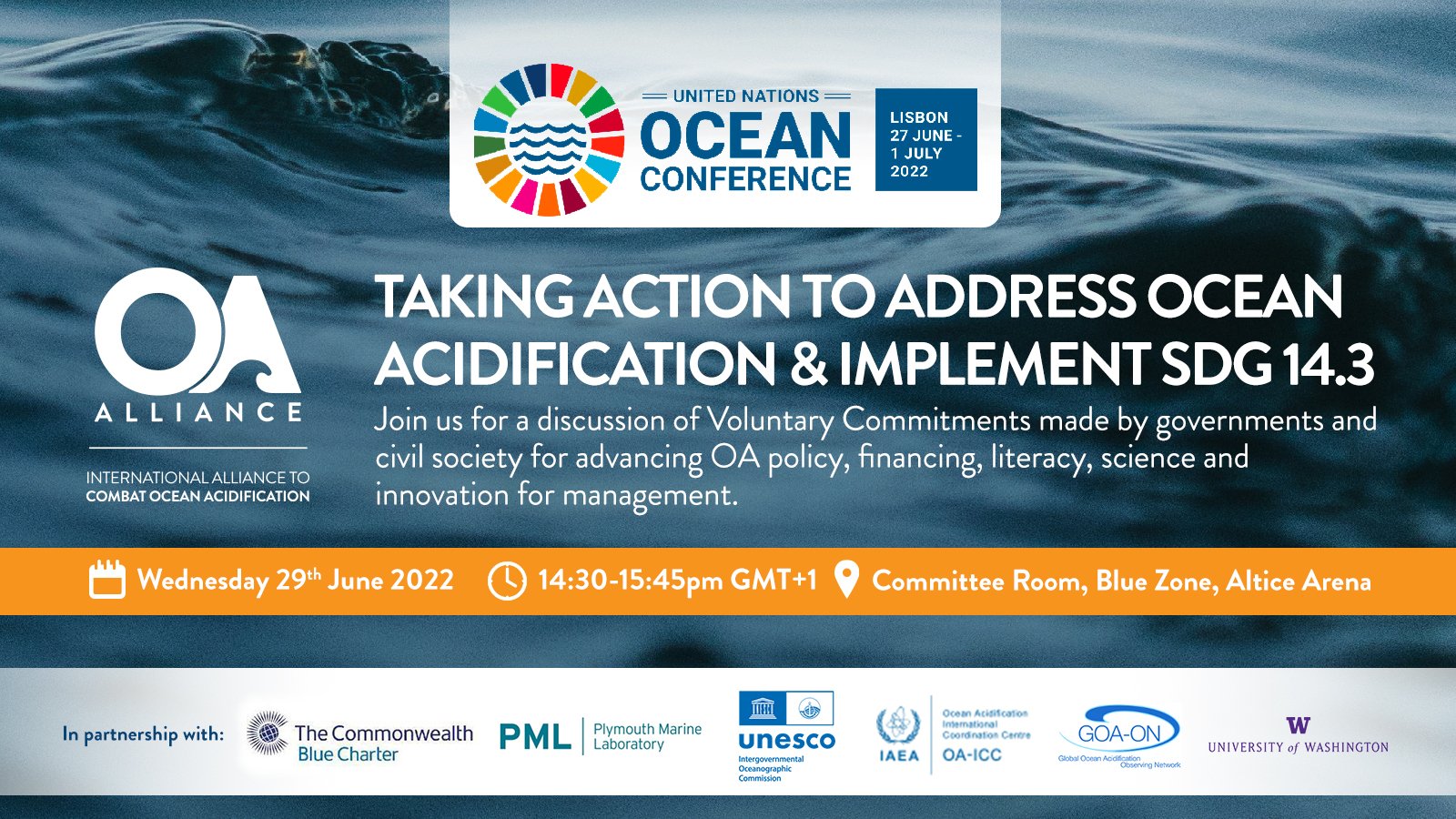Join us at the UN Ocean Conference 2022
Taking Action to Address Ocean Acidification & Implement SDG 14.3
June 29, 2022
14:30-15:45pm
Committee Room
Blue Zone, Altice Arena
Co-Hosted By:
International Alliance to Combat Ocean Acidification, Plymouth Marine Laboratory, Commonwealth Blue Charter, IOC- UNESCO; IAEA Ocean Acidification International Coordination Center, the Global Ocean Acidification- Observing Network and the University of Washington.
Overview:
This event will highlight Voluntary Commitments made by governments and civil society for advancing OA policy, financing, literacy, science and innovation for management.
Invited speakers:
Lord Zac Goldsmith, Minister for Pacific and the Environment at the Foreign, Commonwealth & Development Office (FCDO) and the Department for Environment, Food and Rural Affairs, United Kingdom (invited)
Dr. Richard Spinrad, Under Secretary of Commerce for Oceans and Atmosphere and Administrator of the National Oceanic and Atmospheric Administration, United States (invited)
Dr. Mark Gold, Director of California Ocean Protection Council, State of California
Carleen Thomas, Tsleil-Waututh Nation (TWN)
Prof. Richard Bellerby, Chief Scientist Climate and Oceans, Norwegian Institute for Water Research; OARS co-champion
Dra. Carla F. Berghoff, Programa “Dinámica del Plancton Marino y Cambio Climático, Instituto Nacional de Investigación y Desarrollo Pesquero, Argentina
Dr. Jan Newton, co-chair of the University of Washington Ocean Acidification Center and co-chair of the Global Ocean Acidification Observing Network.
Dr. Vladimir Ryabinin, IOC-UNESCO Executive Secretary
Representative from New Zealand Ministry of Foreign Affairs
Representative from Canada Department of Ocean and Fisheries
There are multiple impacts of climate change to our ocean including ocean warming, acidification, deoxygenation, sea-level rise, more frequent and intense storms, marine heat waves, loss of marine life and habitat, climate variability, and changing circulation. Together, these impacts are causing harm by displacing people, damaging coastal ecosystems, communities and property, decreasing food security and sovereignty, impacting jobs and livelihoods and threating cultural practices and traditions.
Ocean acidification (OA) is a direct result of human-caused carbon dioxide (CO2) emissions and is altering the chemical balance of seawater that marine life depends upon for proper functioning and survival.
While we must drastically reduce CO2 emissions, there are actions that governments and civil society can and should be taking now that will allow for increased adaptation and resilience of vulnerable ecosystems and species, further bolstering the ability of human communities to cope with future change.
Enhancing local and regional knowledge of ocean and coastal risks and impacts— alongside understanding and engaging with coastal community priorities—will help inform the most meaningful management and response strategies. Global efforts are moving forward to provide society with the evidence needed to sustainably identify, monitor, mitigate and adapt to ocean acidification at relevant scales.


